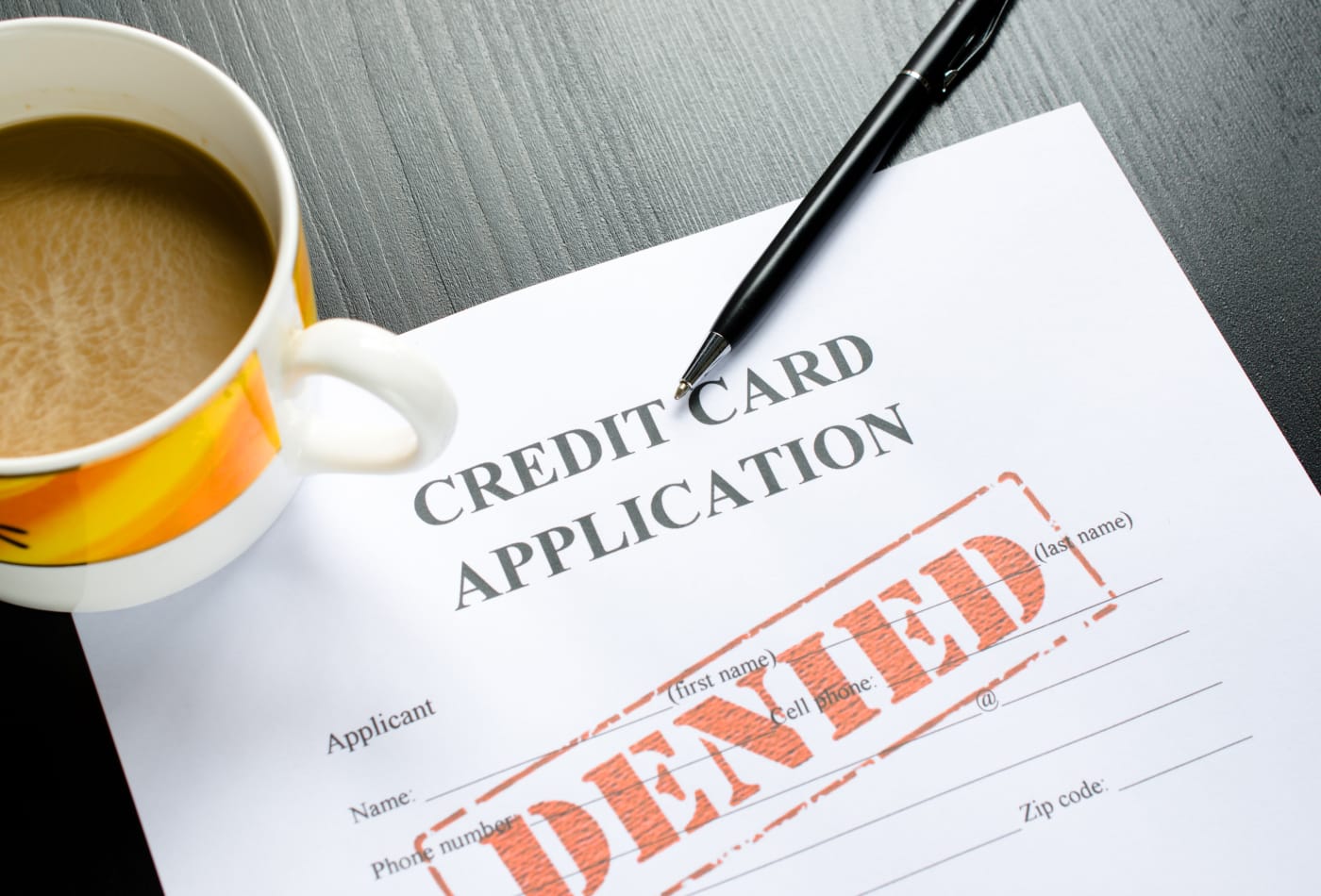Submitting a credit card application and receiving notice that you’re denied is a disappointment,
especially if your credit score drops after applying.
However, the reason your score decreases after getting denied has nothing to do with the lender’s
decision to reject your application (and the same goes for credit approvals).
Instead, the lender’s inquiry into your credit history is what may have hurt your credit score.
Below, CNBC Select reviews how applying for credit impacts your credit score, why you may be denied
and how to increase your approval odds.
How does applying for a credit card affect your credit?
When you apply for new credit, the lender will typically perform a credit check. This often
results in a hard inquiry into your credit history, which means the lender pulls your credit report
from one of the main three credit bureaus — Experian, Equifax or TransUnion.
Hard inquiries appear on the credit report pulled by the lender. For example, if you apply for
the Apple Card, your TransUnion credit report will be accessed, according to Apple’s website. This
will cause an inquiry to appear on your TransUnion report (not your Equifax or Experian reports) and
may result in a temporary decrease in your credit score.
The drop in your credit score is often insignificant and roughly 5 points. The impact decreases
over time despite inquiries remaining on your credit report for two years.
Why you may be denied for a credit card and how to increase approval odds
If you’re denied for a credit card, it’s not the end of the world — you still have options. You
should review the reason(s) why you were rejected and take the appropriate actions to fix any
issues.
Below are some reasons you may be denied for a credit card and how to improve your approval odds.
Short or insufficient credit history
If you lack a credit file and are considered “credit invisible,” you’ll find it difficult to be
approved for credit cards that require a credit history and perform hard inquiries.
How to improve it:
Work on building credit by becoming an authorized user on someone else’s card or consider applying
for cards that don’t require a credit history, such as the Petal® Visa® Credit Card (be aware that
if you do have a credit history, that does factor into the credit decision).
Secured cards, such as the Capital One® Secured Mastercard®, also typically provide better
qualification odds for credit newbies and can be used just like an unsecured card, but require a
refundable security deposit in order to receive a line of credit.
Too many inquiries
Submitting several credit applications within a short period of time may cause lenders to
consider you a risk. Plus your credit score may drop with each new inquiry. While one inquiry won’t
make or break your credit score, multiple inquiries can add up and be the difference between fair
credit and good credit.
How to fix it:
Limit new applications as needed. There’s no specific number of inquiries that’s considered too
many, but a good rule of thumb is to wait at least six months between applications and to only apply
when you have a real need for new credit.
Missed or late payments
Payment history is the most important factor of your credit score, which makes it essential to
pay every bill on time. Late or missed payments have a significant negative impact on your credit
score and can be the reason you’re denied.
How to fix it:
Set up autopay for at least the minimum payment so your account is kept current. However, aim to pay
the balance in full by your due date to avoid carrying a balance and incurring late fees. You can
also consider opening a credit card with no late fees, such as the Apple Card.
Credit card debt
Carrying a balance month-to-month results in a high credit utilization rate, which is the
percentage of credit you’re using. This is the second-most important factor of your credit score. A
high balance may pose you as a risk to lenders and result in rejected applications.
How to fix it:
Aim to maintain a utilization rate as low as possible, preferably 10% or less. Consider transferring
debt to a balance transfer card that offers no interest for up to 21 months. For example, the Citi
Simplicity® Card offers a 0% APR for the first 18 months on balance transfers (after 14.74% to
24.74% variable).
Information about the Apple Card, Capital One® Secured Mastercard® and Citi Simplicity® Card has
been collected independently by CNBC and has not been reviewed or provided by the issuer of the card
prior to publication.
Petal Card issued by WebBank, Member FDIC.
This article was originally published By Alexandria White,
cnbc.com.










